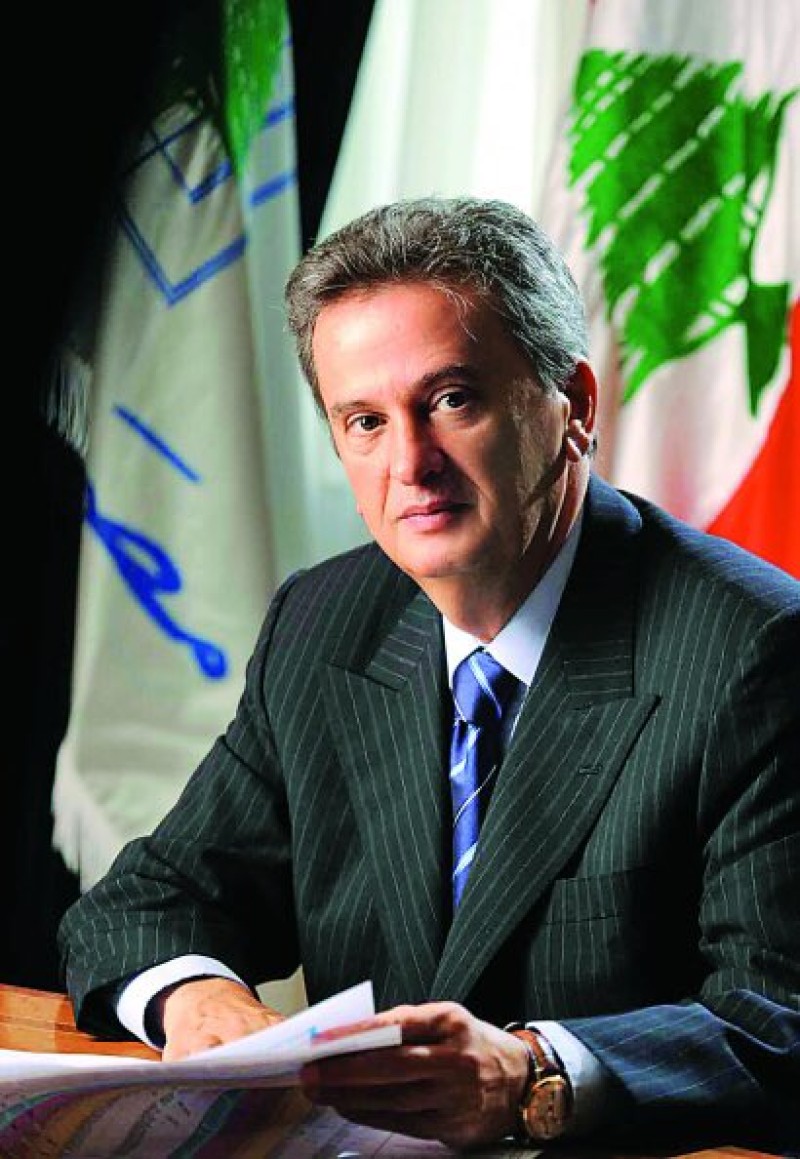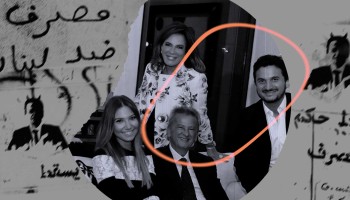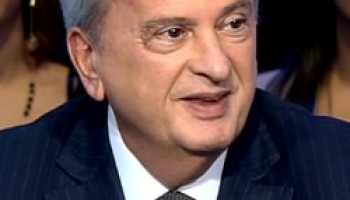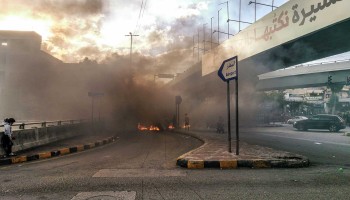In a statement to OCCRP’s local media partner, Daraj.com, the Swiss Office of the Attorney General said the request “is in the context of an investigation for aggravated money laundering… in connection with possible embezzlement to the detriment of the Banque du Liban.”
No details of the investigation were given, but Lebanon’s Minister of Justice, Marie Claude Najm, said she has submitted to the public prosecutor a request for cooperation sent by Swiss judicial authorities. She gave no further details.
The Swiss and Lebanese statements came hours after the Central Bank issued a statement dismissing as “fabrications and false news” media reports that Central Bank Governor Riad Salame, his brother and his assistant are the subjects of the Swiss investigation. Salame himself vowed to sue anyone reporting on the probe.
Salame, his assistant, Marianne Houwayek, and his brother, Raja Salame, were key figures in “Lebanon’s Offshore Governor,” an investigation published in August 2020 by OCCRP and its local media partner, Daraj.com. The report revealed that offshore companies owned by Riad Salame have quietly invested nearly US$100 million in overseas assets, focusing on real estate in the United Kingdom, Belgium and Germany, even as Salame encouraged others to keep their money in his economically devastated country.
Agence France-Presse reported Tuesday that the Swiss investigation involves some $400 million in money transfers. That report could not be immediately confirmed.
Rumors of the governor’s offshore wealth have swirled around Lebanon for years, but the extent of the investments by one of Lebanon’s most prominent public officials had remained a secret until that investigation.
Accusations against Salame have been mounting. His assets, including properties and vehicles, were frozen last July after a group of Lebanese lawyers formally accused him of violating various laws, including embezzlement and mismanagement of public funds.
A second joint investigation, published in December, revealed that a company tied to Salame bought a stake in his son’s London-based financial management company, then sold it to a major Lebanese bank that he regulates.
Salame has denied all wrongdoing, attributing the accusations to Lebanese politics.
Reuters reported Tuesday that a Lebanese government official confirmed the Swiss investigation involves money transfers made by the Salames and Houwayek.
“Both the prime minister and the president are in the loop on the European move,” the official told Reuters.
Diplomats in Beirut told Daraj.com that authorities in several European countries plan similar investigations of money transfers made by Lebanese politically exposed personalities (PEPs) in November 2019, before the country slipped into its deepest financial crisis.
Lebanese citizens have been pressing the government and the central bank to expose the names and amounts of money transferred offshore by Lebanese politicians but the government has declined, citing banking secrecy laws.
Lebanon is dealing with a deep financial crisis that has hurt the currency, worsened poverty and unemployment, and prompted a sovereign debt default. The crippled banking system has cut access to dollar accounts since last year, prompting widespread unrest and demands for legal action against Salame and other officials.
Salame has led the Lebanese Central Bank since 1993, and is the world’s longest-serving central bank chief.






